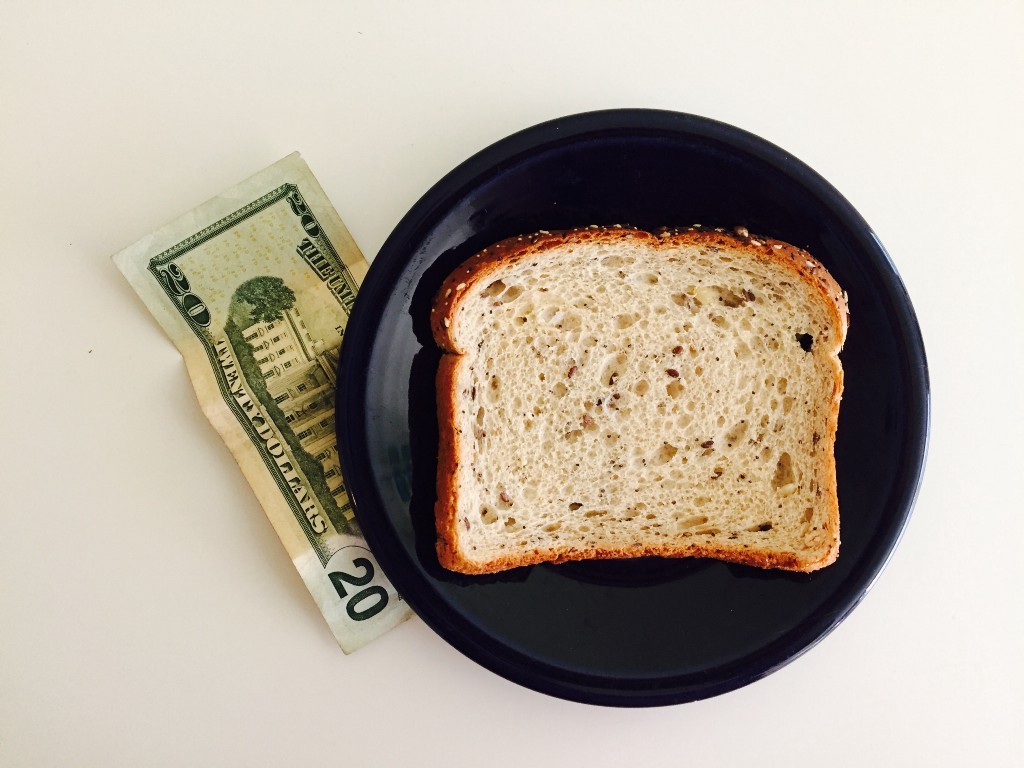Our Relationship to Money Affects Everything
Did you read yesterday’s Toast essay about money and anxiety?

I know that the Venn diagram between Billfold readers and Toast readers is pretty overlappy, but if you didn’t get a chance to read Nicole Chung’s excellent Toast essay “On Money, Anxiety, and Marriage,” make that today’s must-read:
On Money, Anxiety, and Marriage – The Toast
Chung writes about a recent credit company error that incorrectly stated she and her husband owed $1,400, and uses the stress of resolving that error as an entry point to discuss her constant anxiety about money:
But I’ve never been good with money. I don’t mean I can’t earn it, or hold onto it, or value it; I mean just thinking about it makes me feel terrible, uncertain and small and afraid. I never expect good things to happen, financially speaking, and even when things are going well I expect to lose what I have.
I’m giving a presentation at Alaska Robotics’ Artist Camp this weekend titled “Let’s Talk Making Art and Making Money” (it’s half presentation, half facilitated discussion) and after going through a couple of drafts I realized I couldn’t approach this conversation unless I started by discussing my relationship to money and making a space for other campers to discuss theirs.
I mean, it does absolutely no good to say things like “invest in yourself!” and “take breaks!” and all of those other well-meant platitudes to a group of people whose time and earnings may already be allocated for the next two months, as in nearly every penny I earn is already marked for something important, debt or food or taxes or rent or health insurance, and so I have to complete all the work I can as fast as I can—because I not only have to earn all the money I need, I also have to earn extra money because something will undoubtedly go wrong, a client will drop all of its freelancers or I’ll have some kind of medical expense or I’ll learn that I actually owe 22 percent of my income towards taxes, not 20 percent.
Spoiler alert: that’s my relationship to money. I don’t presume it’s anyone else’s, but I know I can’t facilitate a conversation about making art and making money only from my relationship to money, because that won’t be useful to anyone who doesn’t share that relationship. (I take facilitation duties seriously, people.)
Chung explains that she and her husband share financial values, but they have different relationships to money, which means they’ll always look at money slightly differently; he is more inclined to think things will work out, and she is more inclined to worry and make calculations.
I also calculate constantly. Remember how I wrote that I was going to spend $48.10 on a bookshelf this month and finally get my books off of that cheap wire shelving? That got cut as a way to “balance out” the extra $2,589 I owed on my taxes, even though they don’t balance each other out at all, it would be much smarter to resell my Hamilton ticket and cancel the trip to New York in September if I wanted to get more money back into my account (even though that still wouldn’t be anywhere close to $2,589).
Chung writes about this too:
I’m very good at spending when I really want something, but then I’ll choose little, unimportant things to be flinty about — not because they’re make-or-break for us, but because I feel a need to impose iron control over arbitrary spending that isn’t even out-of-control.
So please take a minute to read Chung’s essay, because I think the Venn diagram between Billfold readers and people who “impose iron control over arbitrary spending that isn’t even out-of-control” is close to a circle.
Support The Billfold
The Billfold continues to exist thanks to support from our readers. Help us continue to do our work by making a monthly pledge on Patreon or a one-time-only contribution through PayPal.
Comments